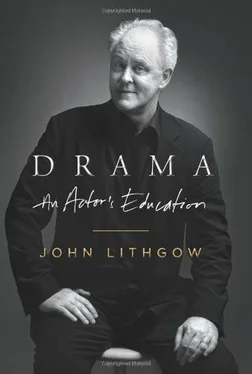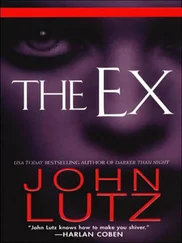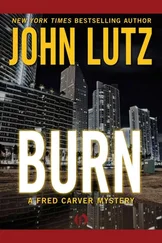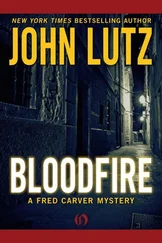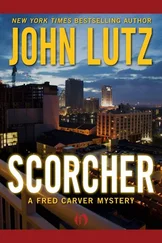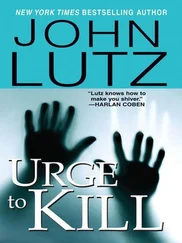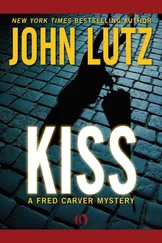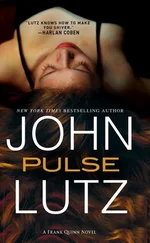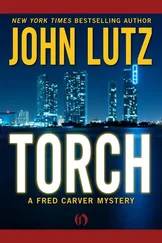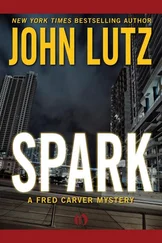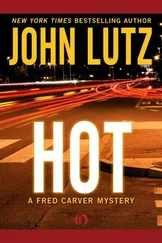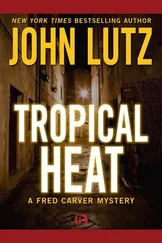John Lithgow - Drama - An Actor's Education
Здесь есть возможность читать онлайн «John Lithgow - Drama - An Actor's Education» весь текст электронной книги совершенно бесплатно (целиком полную версию без сокращений). В некоторых случаях можно слушать аудио, скачать через торрент в формате fb2 и присутствует краткое содержание. Год выпуска: 2011, ISBN: 2011, Издательство: Harper, Жанр: Биографии и Мемуары, на английском языке. Описание произведения, (предисловие) а так же отзывы посетителей доступны на портале библиотеки ЛибКат.
- Название:Drama: An Actor's Education
- Автор:
- Издательство:Harper
- Жанр:
- Год:2011
- ISBN:9780061734977
- Рейтинг книги:4 / 5. Голосов: 1
-
Избранное:Добавить в избранное
- Отзывы:
-
Ваша оценка:
- 80
- 1
- 2
- 3
- 4
- 5
Drama: An Actor's Education: краткое содержание, описание и аннотация
Предлагаем к чтению аннотацию, описание, краткое содержание или предисловие (зависит от того, что написал сам автор книги «Drama: An Actor's Education»). Если вы не нашли необходимую информацию о книге — напишите в комментариях, мы постараемся отыскать её.
Drama: An Actor's Education — читать онлайн бесплатно полную книгу (весь текст) целиком
Ниже представлен текст книги, разбитый по страницам. Система сохранения места последней прочитанной страницы, позволяет с удобством читать онлайн бесплатно книгу «Drama: An Actor's Education», без необходимости каждый раз заново искать на чём Вы остановились. Поставьте закладку, и сможете в любой момент перейти на страницу, на которой закончили чтение.
Интервал:
Закладка:
My father was producing Shakespeare on an epic scale. In the summer of 1951, in league with two of his faculty colleagues, he launched “Shakespeare Under the Stars,” otherwise known as the Antioch Shakespeare Festival. It was to last until 1957. The plays that had sparked the imagination of that lonely boy in an attic room in Melrose, Massachusetts, came to life on a platform stage beneath the twin spires of the stately Main Hall of Antioch College. In every one of those summers, my father’s company of avid young actors, many of them freshly minted graduates of Pittsburgh’s Carnegie Tech, would achieve the impossible. Each season they would open seven Shakespeare plays in the course of nine weeks, rehearsing in the day and performing at night. Once all seven had opened, the company would perform them in rotating repertory, a different play every night of the week, for the final month of the summer. In 1951, the company began with a season of Shakespeare’s history plays. By 1957, they had performed all of the others as well, thirty-eight in all, many of them twice over. My father directed several of them and acted in several more, with an exuberant flamboyance that banished forever his boyhood shyness.
Were the shows any good? In those days I thought they were magnificent. To my young eyes these were the greatest stage actors in the country, my father was the finest director, and Shakespeare couldn’t possibly be performed any better. As the years passed, I began to doubt my childhood impressions. How good could the productions have been with such hasty rehearsals, such threadbare costumes, and such an untested troupe? A twenty-six-year-old King Lear? A professor’s wife as Olivia? Grad students sprinkled among all the minor parts? Though I never lost my sense of awe at the magnitude of my father’s achievement, a certain skepticism crept in when I grew to be a theater professional myself.
But then one day, only a few years ago, I received a package in the mail at my Los Angeles home. It contained an audio cassette. The cassette had been sent to me by a man whose late father, an actor named Kelton Garwood, had been a longtime fixture of the Antioch Festival, fifty years before. In going through Kelton’s effects, his son had found an old reel-to-reel recording. It contained fragments of a live performance of The Merry Wives of Windsor from an Antioch production in 1954. Kelton was featured on the recording in the role of Simple. His son had made a copy of the recording and sent it to me. The day it arrived, I popped the cassette into my car’s tape deck as I drove to work. Out came the scratchy sound of a scene involving a dizzy barmaid named Mistress Quickly, a sullen servant named Jack Rugby, and a manic Frenchman named Dr. Caius. Dr. Caius was played by my father. The scene was spirited, fast-paced, and riotously funny. The tape captured the sound of the audience, roaring with laughter and showering the actors with exit applause. The actors’ unamplified voices were ringing and clear, their timing was expert, and their command of the material was unerring. They were hilarious. As for my dad himself, he was even better than my oldest, fondest recollection of him. I pulled my car over to the side of the road. For a half hour, I sat by myself in a Proustian reverie, listening to the sound of marvelous actors, performing for me from the grave, fifty years after the fact.

Photograph by Axel Bahnsen.
For me, the lazy days of summer in Yellow Springs were a heady blend of Ring Lardner’s Midwest and Shakespeare’s Cheapside. I had my share of Little League baseball, Boy Scout camp, the town pool, even a couple of family car trips to the woods of Kentucky. But these episodes were brief and unmemorable compared to the fantastical pleasures of the summer Shakespeare Festival. Toothy, skinny, barefoot, and nut brown, my buzz cut bleached to near-white by the sun, I would hang out at the theater for hours on end, watching rehearsals, chatting precociously with the actors, and striking up unlikely friendships with them. On reflection, I realize that they must have been a pretty callow bunch, since none of them could have been over thirty. But as a child I considered them to be sophisticated, worldly, seasoned artistes. I was deeply flattered that they seemed to treat me as a peer. It never occurred to me that they were merely being nice to the boss’s son.
Acting careers are ephemeral. Many of the young actors from those days flirted with stardom in the years to come, but few actually achieved it. Age, of course, has overtaken most of them and their moment has passed. But devotees of the American theater scene over the last fifty years would recognize the names of Ellis Rabb, Earle Hyman, Nancy Marchand, William Ball, Pauline Flanagan, Lester Rawlins, Laurence Luckinbill, and Donald Moffat. To my young eyes, they were the definitive King Lear, Othello, Katharina, Puck, Rosalind, Dogberry, Iago, and Justice Shallow, respectively. And I worshiped them all.
One of the big disappointments of my young life came during the first summer of the Shakespeare Festival. That was when my big brother David and my big sister Robin were cast as the two “princes in the tower” in Richard III . They wore tights, jerkins, capes, and floppy velvet hats. They even got to speak a few lines. Apparently I was too young for a speaking part. But I wasn’t too young to be stricken with sibling envy.
The second summer was no better. Brother David got to play Lucius, the serving boy to Brutus, in Julius Caesar . Brutus was played by my father. One sweltering matinee day, David was queasy with stomach flu. A half hour before the performance, he asked to be excused. In a near tirade, my father attempted to instill in him the notion that “the show must go on.” David acceded. He played Lucius that day, waiting on his father and struggling mightily to keep from vomiting into the bushes in front of a packed house. But after that, he never wanted to act again.
In time, my beloved brother Dave would craft his own version of my father’s vagabond lifestyle. It had nothing to do with the theater. Boy and man, David’s exuberance and animation always verged on the hyperactive. Hungrily inquisitive, a loquacious talker, and a demon for speed and exercise, he figuratively and literally took flight from the family business. He fell in love with flying. All the passion, intelligence, and energy that he might have poured into a career onstage he channeled elsewhere. He chose a life of aviation — as an Air Force pilot, an international airline captain, and an official of the FAA. Lucius in Julius Caesar was his swan song, at the tender age of twelve. And there was I, sitting in the audience with my sister, dying, dying , to go on in his place.
The next summer, I finally got my chance. The season included A Midsummer Night’s Dream , and I was tapped to play Mustardseed, one of Titania’s entourage of fairies (sister Robin was cast as Moth). I searched the script and was thrilled to discover that Mustardseed actually had lines. Lines! For the first time I would speak onstage! There were only seven lines in all, and none contained more than four words (the longest was “Where shall we go?” spoken in unison with the other three fairies), but this took nothing away from the exhilaration of that moment.
As with Sleeping Beauty , my costume was an issue. In its first incarnation, it consisted of a long-sleeved, bright-yellow leotard and a hat made of yellow fake fur. The hat was a miraculous creation. It had the shape of a tall seed pod, fastened under my chin and pointing straight up, rising two feet above my head. The dazzling yellow of the costume was set off by bronze-colored body makeup on my bare, spindly legs and several square inches of bold blue greasepaint around my eyes. I absolutely loved the look. As I took the stage at the dress rehearsal, I was Mustardseed incarnate.
Читать дальшеИнтервал:
Закладка:
Похожие книги на «Drama: An Actor's Education»
Представляем Вашему вниманию похожие книги на «Drama: An Actor's Education» списком для выбора. Мы отобрали схожую по названию и смыслу литературу в надежде предоставить читателям больше вариантов отыскать новые, интересные, ещё непрочитанные произведения.
Обсуждение, отзывы о книге «Drama: An Actor's Education» и просто собственные мнения читателей. Оставьте ваши комментарии, напишите, что Вы думаете о произведении, его смысле или главных героях. Укажите что конкретно понравилось, а что нет, и почему Вы так считаете.
